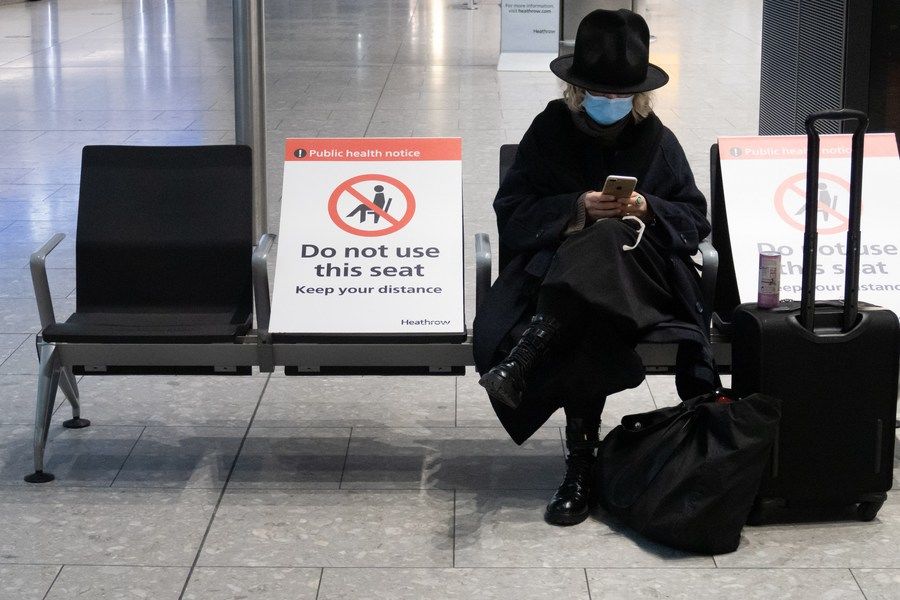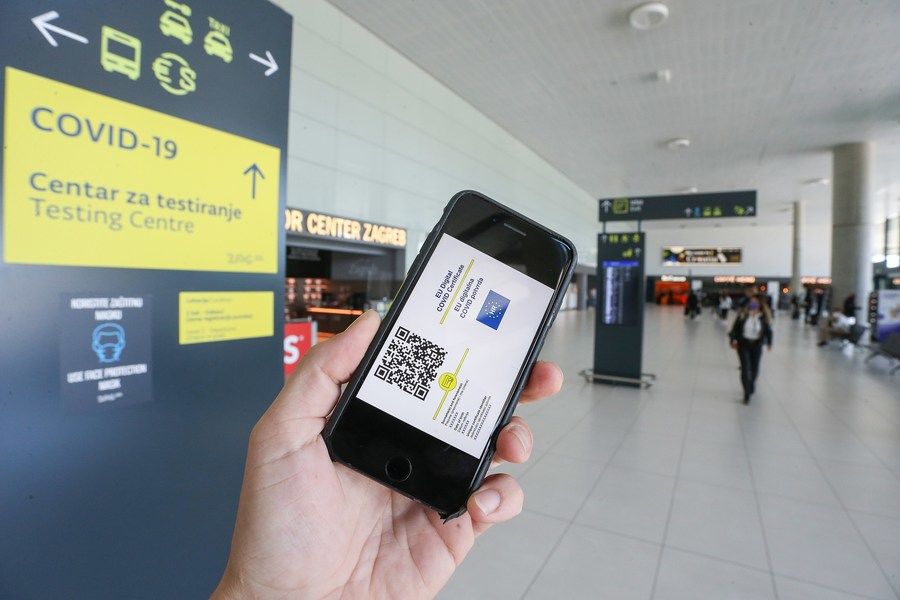
A woman waits in the arrivals hall at Heathrow Airport in London, Britain, on Dec. 21, 2020.
WHO Director-General Tedros Adhanom Ghebreyesus urged countries to take "rational, proportional risk-reduction measures, in keeping with the International Health Regulations."
The World Health Organization (WHO) warned on Tuesday that blanket travel bans will not prevent the international spread of the COVID-19 Omicron variant, even as dozens of countries have already introduced such restrictions.
Although Omicron has been labeled a "variant of concern" by the WHO, it said blanket travel bans will only place a heavy burden on lives and livelihoods, while also "disincentivizing countries to report and share epidemiological and sequencing data."
The Omicron variant was first reported to the WHO by South Africa last week. So far, several countries and regions have confirmed cases of infection with Omicron. Dozens of countries have already tightened travel measures, and even suspended flights.

Photo taken on June 2, 2021 at Franjo Tudjman Airport of Zagreb, Croatia shows a digital COVID-19 certificate form on a cell phone.
At a member states session on the Omicron variant on Tuesday, WHO Director-General Tedros Adhanom Ghebreyesus thanked Botswana and South Africa for detecting and reporting this variant so rapidly. It is deeply worrying that these countries were being penalized by others for doing the right thing, he said.
He called the "blunt, blanket measures" introduced by some member states "not evidence-based or effective on their own." He urged countries to take "rational, proportional risk-reduction measures, in keeping with the International Health Regulations."
Meanwhile, the WHO advises that "persons who are unwell or at risk of developing severe COVID-19 disease and dying, including people 60 years of age or older or those with comorbidities such as heart disease, cancer and diabetes," should postpone travel plans.





